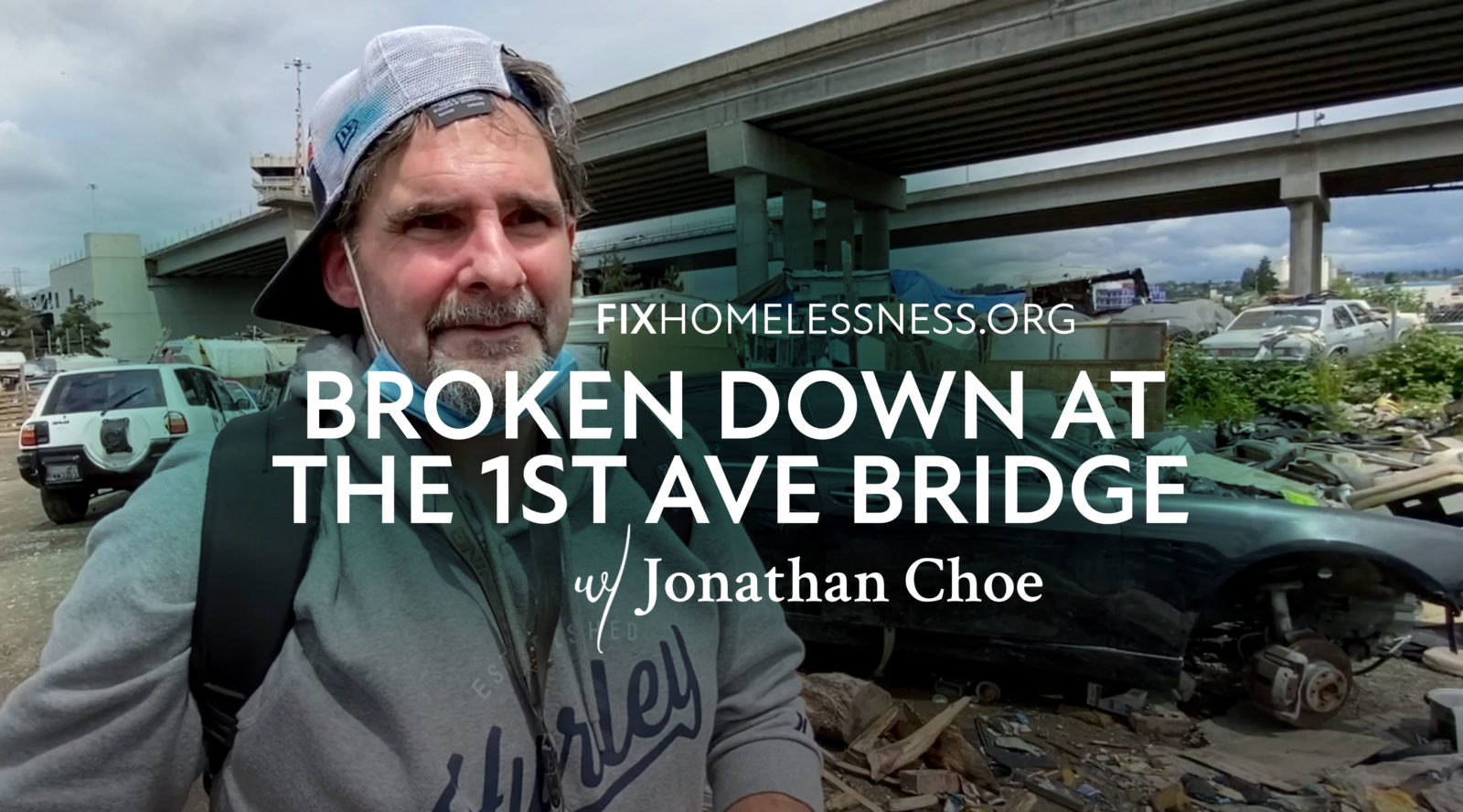The view from high above the First Avenue Bridge is breathtaking, with downtown Seattle on the horizon. But as you get closer to the ground, it looks like a third world country below.
Surrounded by fencing and barbed wire, this plot of land, near the corner of 2nd Avenue and Michigan Street, a couple miles from the downtown core, is arguably one of the city’s most problematic homeless encampments
Authorities have responded to this area for multiple shootings, deaths, and on-going neighbor complaints about what’s being called a “chop shop” of stolen vehicles hidden in plain sight.
“I just can’t imagine why they don’t go in and just look what’s there, run the VINS and the license plates,” says Tony. He only wants me to use his first name fearing retaliation from campers since he’s now taking matters into his own hands.
For the past few weeks, Tony has been flying his drone over the lot and using the on-board camera to locate vehicles that could be stolen. His efforts have already helped a few victims of auto theft find their cars — though he says one man on the ground fired a BB gun at his drone during flight.
“If there’s anything I can do to help, if there’s other places where they think I should take pictures of, I’d be happy to meet ‘em there and take pictures for ‘em,” says Tony.
Law enforcement consultant Jim Fuda with Crime Stoppers of Puget Sound says the Seattle Police Department doesn’t have the resources right now to investigate these types of crimes.
“There’s not enough police to go around and properly do what they do so they have to prioritize Priority 1 calls which are like violent crimes or murders. Auto thefts and these types of calls are not on the radar,” says Fuda.
He says SPD is struggling to recruit and retain officers because of the “defund the police” movement and City Council policies that have hurt morale. For safety reasons, he’s advising the public to stay away from this sprawling encampment for now.
However, it’s home to more than a dozen people like this man, who only wants to be called Weaver, who’s trying to survive after his RV recently burned down.
“I warned the guy two days earlier, don’t burn candles. I think he was just being careless,” says Weaver.
Weaver says criminals come by to use the lot as a dumping ground for stolen cars and the homeless always get unfairly lumped in.
“I don’t mess with any of these cars, actually my car got stolen,” says Weaver.
Robert Chase is another camper who invited me in and gave me a tour.
“The blame gets left to the homeless people. That’s who gets the blame — the homeless,” says Chase.
Seeing all the trash, stripped down vehicles, and the misery up close and personal, is overwhelming.
“If you want to get some real good footage you come at night you see all the rats,” says Chase.
Living here is even worse.
“I was sleeping. It crawled in my motor home. Crawled in my face. And stepped in my mouth and woke me up. Was in my mouth while I was sleeping,” says Chase.
He wanted me to know that this is his reality on the ground. And he says drug use at this camp is rampant.
“Lot of people are homeless and doing drugs. But let me tell you something. Doing drugs makes homeless being bearable for a lot of people,” says Chase.
For more than a year, city outreach workers and church groups have been coming by to help and offer services. Tony Lam says he’s been living here in a wooden shack for two years and is waiting to get into shelters like tiny house villages.
But he says dealing with the paperwork makes this a difficult process. And regarding the information he needs to find help, Lam, who’s first language is Vietnamese, wonders “where to get it or how to sign up.”
Ultimately, the city and state are responsible for this plot of land right next to the Duwamish river, and there’s also concern trash and sewage from the encampment could be contaminating the water.
“Luckily there are toilets here, because normally there’s not even anywhere to use the bathroom, let alone like places to throw away garbage,” says this camper who only goes by “Molly.”
As for what happens next, officials aren’t giving any clear guidance on this lot. We were unable to reach the Washington Department of Transportation for comment. A spokesperson for Mayor Bruce Harrell says it’s on their radar.
Earlier in the week I asked Deputy Mayor Tiffany Washington when this place would be cleared. “I don’t know I haven’t looked at it. It just depends,” says Washington. The Deputy Mayor went on to say there are multiple factors to consider before an encampment is cleared, and that it won’t just be based on the most complaints.
That’s why at the very least, Weaver wants the abandoned vehicles towed away, and is now asking for some consistent trash pick-up as well, for the sake of everyone who still calls this place home. “The people who actually stay here, yeah they’re good people,” says Weaver.
Behind the Scenes
Robert Chase was gracious enough to invite me in for a tour. I understand the safety concerns. But I have been building relationships with the homeless at various encampments in Seattle now for the past couple years and have their trust, especially here.
Abandoned Camps
This area is so vast, there are remnants of multiple homeless encampments all over the place. We could not enter this fenced area.
Place Needs a Deep Clean
@weheartseattle and @weheartfounder have already scouted this place out and now planning for community volunteer outreach and clean up in the very near future. I’m waiting to hear back from @MayorofSeattle and @KCHRA about outreach efforts so far.

